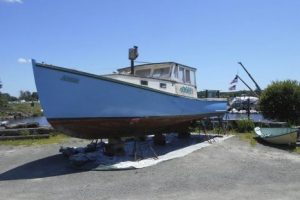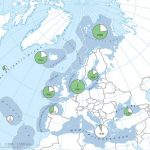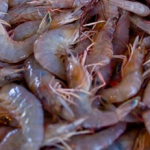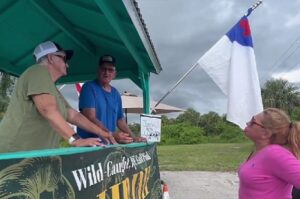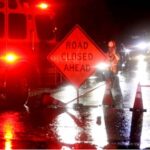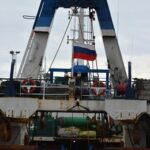Tag Archives: Washington State
Pacific Seafood Completes Acquisition of Trident’s Kodiak Operations
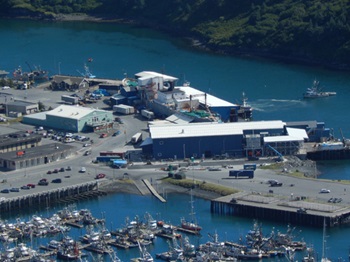 Pacific Seafood and Trident Seafoods today jointly announced the completion of Pacific’s acquisition of Trident’s Kodiak, Alaska, processing operations. The acquisition includes three well-established processing plants—Star of Kodiak, Alkod, and Kodiak Near Island—as well as the Plaza bunkhouse apartments for team member housing. Trident’s Kodiak team members will be retained by Pacific Seafood, ensuring continuity and stability for the team and the local community. “Kodiak is home to some of the most abundant and sustainable fisheries in the world, and we are honored to partner with our new, very talented team members, the fleet and the community to unlock new opportunities for this region,” more, >>CLICK TO READ<< 10:27
Pacific Seafood and Trident Seafoods today jointly announced the completion of Pacific’s acquisition of Trident’s Kodiak, Alaska, processing operations. The acquisition includes three well-established processing plants—Star of Kodiak, Alkod, and Kodiak Near Island—as well as the Plaza bunkhouse apartments for team member housing. Trident’s Kodiak team members will be retained by Pacific Seafood, ensuring continuity and stability for the team and the local community. “Kodiak is home to some of the most abundant and sustainable fisheries in the world, and we are honored to partner with our new, very talented team members, the fleet and the community to unlock new opportunities for this region,” more, >>CLICK TO READ<< 10:27
Washington state poised to set precedent as first government in the world to successfully remove and permanently ban commercial net-pen aquaculture
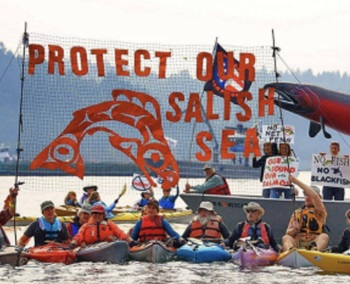 Washington state recently garnered international attention for its successful removal of all polluting and hazardous commercial net pens from Puget Sound. Now, the state is on the verge of adopting a statute that would prohibit this commercial industry from ever returning to Puget Sound. Washington would be the first place in the world to both entirely remove the existing industry and permanently ban future operation of commercial net pens in marine waters. In 2022, responding to the concerns of the public and the well-documented record of ecological harm, Washington’s Commissioner of Public Lands, Hilary Franz, rejected applications from seafood giant Cooke Aquaculture seeking new leases to continue operating their commercial net pens in Puget Sound. Concurrently, she issued a new executive order prohibiting commercial net pen aquaculture in Washington marine waters. Cooke Aquaculture is the company responsible for the catastrophic Cypress Island net pen collapse in 2017, which released over 260,000 nonnative, virus-infected Atlantic salmon into Puget Sound. more, >>CLICK TO READ<< 07:26
Washington state recently garnered international attention for its successful removal of all polluting and hazardous commercial net pens from Puget Sound. Now, the state is on the verge of adopting a statute that would prohibit this commercial industry from ever returning to Puget Sound. Washington would be the first place in the world to both entirely remove the existing industry and permanently ban future operation of commercial net pens in marine waters. In 2022, responding to the concerns of the public and the well-documented record of ecological harm, Washington’s Commissioner of Public Lands, Hilary Franz, rejected applications from seafood giant Cooke Aquaculture seeking new leases to continue operating their commercial net pens in Puget Sound. Concurrently, she issued a new executive order prohibiting commercial net pen aquaculture in Washington marine waters. Cooke Aquaculture is the company responsible for the catastrophic Cypress Island net pen collapse in 2017, which released over 260,000 nonnative, virus-infected Atlantic salmon into Puget Sound. more, >>CLICK TO READ<< 07:26
Gearing up: Crabbers get ready
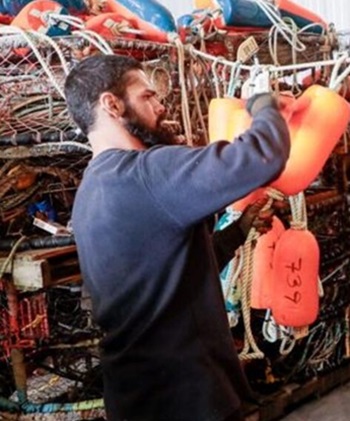 Crab pots are beginning to fill area ports, a sign that the state’s most lucrative commercial fishery is preparing for the season ahead. “We already have 200 staged down at the dock,” said commercial fisherman Florian Mumford, who will fish 600 pots this season total from the F/V Vengeance. Mumford was busy alongside crew Erik Ervest, Mark Hippensteel and Devlin Moline prepping pots Friday, Nov. 15, inside a covered building at the Ilwaco Boatyard. The official start of the 2024 Washington commercial Dungeness crab season could come as early as Dec. 1, if the crab pass preseason test fishery results for meat recovery and shell hardness. The tests are conducted in four rounds by WDFW, beginning in October and continuing through November in Washington, Oregon and California. The WDFW uses contracted coastal commercial crab vessels to conduct the test fishing. more, >>CLICK TO READ<< 06:39
Crab pots are beginning to fill area ports, a sign that the state’s most lucrative commercial fishery is preparing for the season ahead. “We already have 200 staged down at the dock,” said commercial fisherman Florian Mumford, who will fish 600 pots this season total from the F/V Vengeance. Mumford was busy alongside crew Erik Ervest, Mark Hippensteel and Devlin Moline prepping pots Friday, Nov. 15, inside a covered building at the Ilwaco Boatyard. The official start of the 2024 Washington commercial Dungeness crab season could come as early as Dec. 1, if the crab pass preseason test fishery results for meat recovery and shell hardness. The tests are conducted in four rounds by WDFW, beginning in October and continuing through November in Washington, Oregon and California. The WDFW uses contracted coastal commercial crab vessels to conduct the test fishing. more, >>CLICK TO READ<< 06:39
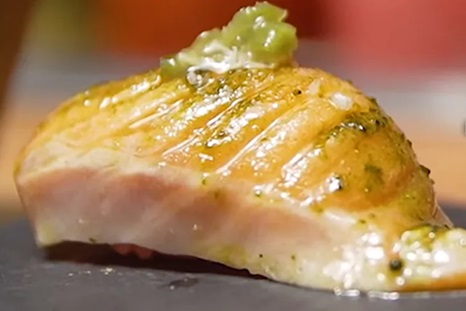
Study Reveals Salmon Mislabeling in Seattle Sushi Restaurants
Researchers conducted a study on salmon samples from 67 grocery stores and 52 local sushi shops, revealing that 32.3% of sushi restaurant samples contained farmed salmon instead of the wild salmon that vendors claimed. It remains unclear whether this mislabeling occurred at the restaurant level or earlier in the distribution chain. In contrast, no grocery store samples were found to have this issue, although 11.1% of the salmon sold in grocery stores was identified as the incorrect species. Additionally, 38% of the samples from restaurants were substituted with the wrong type of salmon. The financial implications for consumers are significant. When customers believe they are purchasing high-quality wild salmon, they may be willing to pay a higher price, not realizing they are receiving a less valuable product. This not only affects consumer trust but can also undermine the market for legitimate wild-caught salmon fishermen, who depend on consumers recognizing the value of their sustainably sourced fish. more, >>CLICK TO READ<< 11:44
“A Total Shock” – Japanese Sardines Detected in U.S. Waters
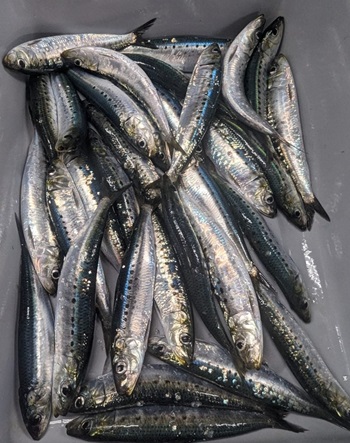 Genomic sequencing of Pacific sardines in 2022 and 2023 uncovered the presence of not just one, but two distinct sardine species in the California Current. When research scientist Gary Longo first reviewed the results of his genomic analysis of sardines, he thought he must have mixed up his samples. Besides the Pacific sardines common on the West Coast, many of the fish appeared to be another species. “It was a total shock,” he said. Then he compared their genetic code to other known species. “That was the ‘aha moment’ when we realized we were looking at a second species of sardine.” The analysis shows that of the 345 sardine samples collected during NOAA Fisheries’ 2021 and 2022 Coastal Pelagic Species Surveys, all of the fish in 2021 were Pacific sardines, but those collected in 2022 were a mix of Pacific sardines and Japanese sardines. more, >>CLICK TO READ<< 10:50
Genomic sequencing of Pacific sardines in 2022 and 2023 uncovered the presence of not just one, but two distinct sardine species in the California Current. When research scientist Gary Longo first reviewed the results of his genomic analysis of sardines, he thought he must have mixed up his samples. Besides the Pacific sardines common on the West Coast, many of the fish appeared to be another species. “It was a total shock,” he said. Then he compared their genetic code to other known species. “That was the ‘aha moment’ when we realized we were looking at a second species of sardine.” The analysis shows that of the 345 sardine samples collected during NOAA Fisheries’ 2021 and 2022 Coastal Pelagic Species Surveys, all of the fish in 2021 were Pacific sardines, but those collected in 2022 were a mix of Pacific sardines and Japanese sardines. more, >>CLICK TO READ<< 10:50
Dungeness are WA’s most lucrative seafood, but we know little about them
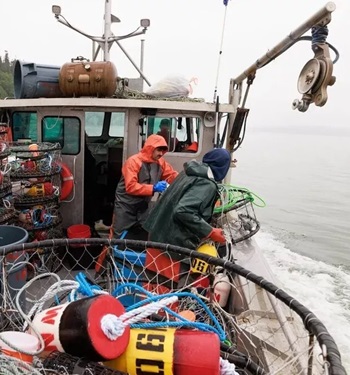 Dom Wilbur slammed the knife into the frozen squid, sending shattered ice flying. Nearby stacks of crab pots teetered as his dad throttled the boat past the Skagit River delta and carved deeper into the fog. As the salty mist enveloped the deck, Dom Wilbur and his cousin Alex Stewart heaved empty pots and stuffed bait traps with the squid and chum salmon. “Go ahead, boys,” J.J. Wilbur called out from the rear cab window. Dom Wilbur and Stewart tossed the buoy off the side of the boat, followed by the splash of a 65-pound pot. They would repeat this dance dozens of times on a late June afternoon and haul up a bounty of Dungeness before sunset. more, >>CLICK TO READ<< 09:23
Dom Wilbur slammed the knife into the frozen squid, sending shattered ice flying. Nearby stacks of crab pots teetered as his dad throttled the boat past the Skagit River delta and carved deeper into the fog. As the salty mist enveloped the deck, Dom Wilbur and his cousin Alex Stewart heaved empty pots and stuffed bait traps with the squid and chum salmon. “Go ahead, boys,” J.J. Wilbur called out from the rear cab window. Dom Wilbur and Stewart tossed the buoy off the side of the boat, followed by the splash of a 65-pound pot. They would repeat this dance dozens of times on a late June afternoon and haul up a bounty of Dungeness before sunset. more, >>CLICK TO READ<< 09:23
Nearly $12 million headed to Alaska in latest infusion of fishery-disaster aid
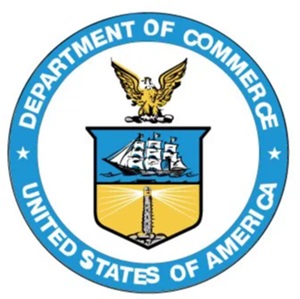 The aid money is for disasters declared for the 2022 chum salmon failure on the Kuskokwim River and the 2021-2022 sockeye salmon failure that affected Upper Cook Inlet setnet fishers. Aid for the Kuskokwim River disaster totaled $331,920, while aid for the Upper Cook Inlet sockeye disaster totaled nearly $11.5 million, according to the National Oceanic and Atmospheric Administration, which is a branch of the Commerce Department. Alaska is not the only state affected by poor salmon returns. Along with Friday’s announcement of aid for those affected by the Alaska salmon disasters, the Commerce Department announced $403,978 in aid for the Port Gamble S’Klallam Tribe’s 2021 Puget Sound fall chum and coho salmon fisheries in Washington state. more, >>CLICK TO READ<< 11:50
The aid money is for disasters declared for the 2022 chum salmon failure on the Kuskokwim River and the 2021-2022 sockeye salmon failure that affected Upper Cook Inlet setnet fishers. Aid for the Kuskokwim River disaster totaled $331,920, while aid for the Upper Cook Inlet sockeye disaster totaled nearly $11.5 million, according to the National Oceanic and Atmospheric Administration, which is a branch of the Commerce Department. Alaska is not the only state affected by poor salmon returns. Along with Friday’s announcement of aid for those affected by the Alaska salmon disasters, the Commerce Department announced $403,978 in aid for the Port Gamble S’Klallam Tribe’s 2021 Puget Sound fall chum and coho salmon fisheries in Washington state. more, >>CLICK TO READ<< 11:50
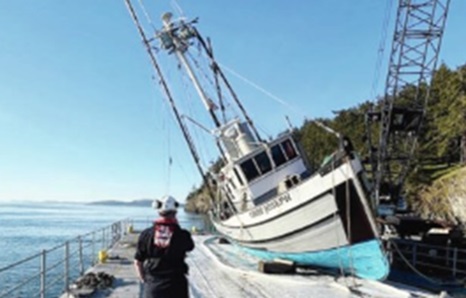
Sunken fishing vessel raised, fuel offloaded at Henry island
The 48-foot commercial fishing boat, called Chief Joseph, went down on May 3 after taking on water west of Henry Island, just over the U.S. border about five kilometres from Sidney Island. A man and a dog were rescued from a life raft on shore by the U.S. Coast Guard at about 6 p.m. A U.S. Coast Guard helicopter aircrew conducted a flight over the area and reported a 90-metre sheen on the water and a debris field from the sunken vessel. Absorbent booms were laid to capture most of the fuels. Salvage operations got underway last week with divers from Global Diving and Salvage using a pump truck on board a barge to retrieve about 1,900 litres of diesel fuel from the Chief Joseph’s tanks. 3 Photos, more, >>CLICK TO READ<< 09:53
Construction Worker/Commercial Fisherman David Earl Finifrock Jr. of Washington State, has passed away
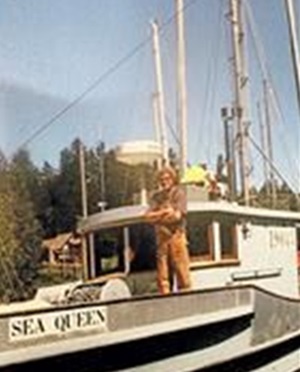 Earl Finifrock Jr., born May 1,1966 in Ogden, Utah to father, David Finifrock Sr., currently of Tracyton, Washington and mother Cynthia Finifrock currently of Gig Harbor, Washington, passed away from a massive heart attack on Friday, February 16, 2024, at a construction site he was working on in Key Center, Washington. David was also a successful commercial fisherman, spending most summers for the past several years on his 50′ trawler, the “Sea Queen”, in the waters near Wrangell, Alaska, fishing for salmon. Most people who knew David would describe him as a good and honest friend, nephew, and cousin, a great craftsman, a wonderful son to his parents, and generally “one of the best guys you would ever want to know”. more, >>click to read<< 20:39
Earl Finifrock Jr., born May 1,1966 in Ogden, Utah to father, David Finifrock Sr., currently of Tracyton, Washington and mother Cynthia Finifrock currently of Gig Harbor, Washington, passed away from a massive heart attack on Friday, February 16, 2024, at a construction site he was working on in Key Center, Washington. David was also a successful commercial fisherman, spending most summers for the past several years on his 50′ trawler, the “Sea Queen”, in the waters near Wrangell, Alaska, fishing for salmon. Most people who knew David would describe him as a good and honest friend, nephew, and cousin, a great craftsman, a wonderful son to his parents, and generally “one of the best guys you would ever want to know”. more, >>click to read<< 20:39
U.S. regulators will review car-tire chemical that kills salmon, upon request from West Coast tribes
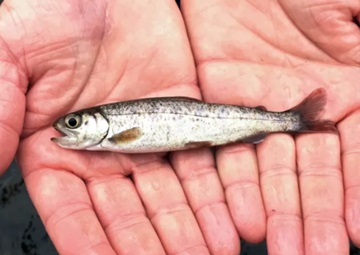 U.S. regulators say they will review the use of a chemical found in almost every tire after a petition from West Coast Native American tribes that want it banned because it kills salmon as they return from the ocean to their natal streams to spawn. The Yurok tribe in California and the Port Gamble S’Klallam and Puyallup tribes in Washington asked the Environmental Protection Agency to prohibit the rubber preservative 6PPD earlier this year, saying it kills fish — especially coho salmon — when rains wash it from roadways into rivers. Washington, Oregon, Vermont, Rhode Island and Connecticut also wrote the EPA, citing the chemical’s “unreasonable threat” to their waters and fisheries. >>click to read<< 10:14
U.S. regulators say they will review the use of a chemical found in almost every tire after a petition from West Coast Native American tribes that want it banned because it kills salmon as they return from the ocean to their natal streams to spawn. The Yurok tribe in California and the Port Gamble S’Klallam and Puyallup tribes in Washington asked the Environmental Protection Agency to prohibit the rubber preservative 6PPD earlier this year, saying it kills fish — especially coho salmon — when rains wash it from roadways into rivers. Washington, Oregon, Vermont, Rhode Island and Connecticut also wrote the EPA, citing the chemical’s “unreasonable threat” to their waters and fisheries. >>click to read<< 10:14
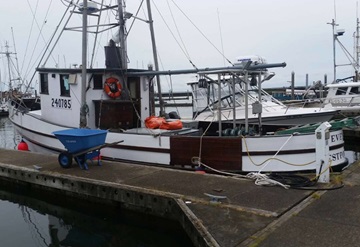
Coast Guard suspends search for missing Westport vessel
The Coast Guard suspended the search for the fishing boat F/V Evening and her two crew, homeported out of Westport, on Wednesday morning after several days of searching. The search began Sunday for the fishing boat when a family member reported them overdue returning, according to Coast Guard public affairs specialist Petty Officer 2nd Class Steve Strohmaier. “Coast Guard members at Station Grays Harbor in Westport received a call from the daughter of one the men stating their father was already supposed to have returned home from the fishing trip,” Strohmaier said in an email. “She was not sure of their intended destination, so the Coast Guard had a wide search area.” >>click to read<< 09:33
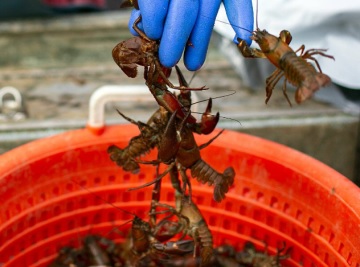
A Southern tradition, fresh from the Snohomish River
It’s a far cry from the bayous of Louisiana, but the crawfish look right at home in the metal trap as Ithamar Glumac hoists them out of the water. “They’re bottom feeders, so they’re perfectly happy to hang out in this trap for as long as I’ll leave them there,” Glumac said. “Food floats right on by and predators can’t get them, so it’s probably like a nice vacation home for them more than anything.” A huge plastic bucket, full of crawfish loosed from similar traps just minutes before, awaits on Glumac’s boat. He unlatches the wire cage and shakes the most recent handful of tiny lobsters out into the tub with their brethren. Then it’s on to the next stop, another one of the hundreds of traps up the Snohomish River pinpointed by Glumac’s GPS-powered fish finder. Photos, >>>.click to read<<< 15:42
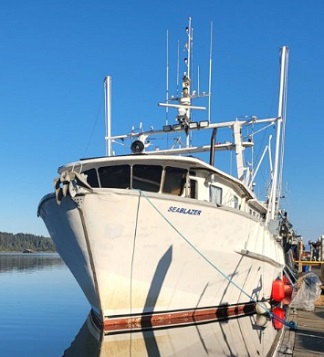
Starlink helps locate sunken treasure in Washington waters worth millions
Nearly 150 years ago, the SS Pacific and the S/V Orpheus collided off the coast of Cape Flattery in Washington state. While the Orpheus was able to ready lifeboats and make necessary repairs, the SS Pacific was not so fortunate, sinking into the late-night waters killing all but two of its estimated, 325 passengers. To this day, the incident remains one of the deadliest maritime disasters in Pacific Northwest history. Jeff Hummel and Matt McCauley first met while attending a high school in Mercer Island in 1979. In conversation, Hummel brought up a sunken airplane he knew about, which his father witnessed crash in Lake Washington while working at the Boeing plant in Renton. Photos, >click to read< 09:32
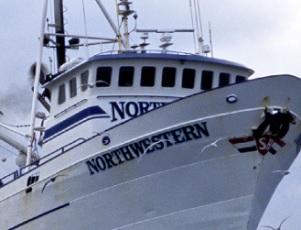
Why A Deadliest Catch Deckhand Is Suing Sig Hansen’s Company
A deckhand working on the fishing vessel Northwestern, which frequently appears on the Discovery hit “Deadliest Catch,” has filed a personal injury lawsuit against the ship’s owners. Alaska Public Media reports that deckhand Nick Mavar Jr. filed a civil suit against Hansen Enterprises, Inc. in December 2022 in Washington State’s King County Superior Court. In the brief, as quoted by Alaska Public Media, Mavar Jr. explains that during a December 2020 voyage with the show’s crew aboard the boat, Mavar Jr. began to experience worsening abdominal pain while working. He claims that he was not given adequate medical treatment in time, resulting in his appendix bursting before he was airlifted to a local hospital for treatment. It was later discovered that there was a cancerous tumor within the ruptured organ. Hansen Enterprise’s legal issues don’t end there. In the wake of Nick Mavar Jr.’s suit, Hansen Enterprises Inc. filed a civil lawsuit against Original Productions Inc and Trifecta Solutions LLC >click to read< 19:40
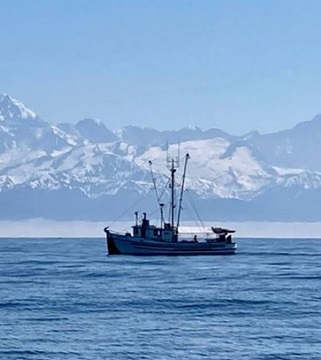
Lawsuit threatens Washington’s commercial fishing families | Opinion
While Alaska might be more than 1,000 miles away, Washington shares a lot more with the 49th State than most people realize. This is especially true in the fishing industry where the relationship between Washington and Alaska runs deep and ripples throughout Washington’s economy and communities. We are seeing the complexities and the nuances of this relationship play out right now in a lawsuit that the Seattle-based Wild Fish Conservancy brought against the National Marine Fisheries Service in 2020 with the goal to shut down southeast Alaska’s small boat, hook-and-line Chinook troll fishery in the misguided name of saving the Southern Resident killer whales. >click to read< 14:57
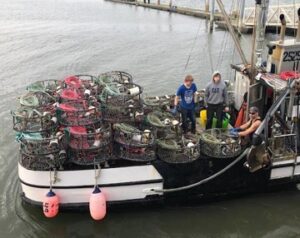
Westport and Tokeland drop their crab pots in anticipation of today’s commercial crab opener
At 8 a.m. this past Sunday, “Dump Day” took over the ports at Westport and Tokeland. The pots have been “soaking.” Commercial crabbers were allowed to pull pots they dropped on Sunday, starting at 8 a.m. today, Wednesday, Feb. 1. Jeremy Hammond, 50, Tokeland, is a deckhand for the Southern Cross, a fishing boat moored in Tokeland. His dad was a Bering Sea captain. He spent 12 years fishing the Bering Sea, an inhospitable water full of wind and waves and severe cold. Fit as a fiddle, this past Saturday he manhandled the crab pots as he filled the hull and then the deck of the Southern Cross. Hammond has a softer side, playing guitar, writing his own songs. He has a baby grand piano in his living room. But his essence is as a fisherman. “I’m excited to go out there and make a paycheck,” he said. >click to read< 13:36

Commercial Dungeness crab season opens January 15
The Oregon Department of Fish and Wildlife announced Friday that the commercial Dungeness crab fishery season opens from Cape Falcon to Cape Arago January 15. The season opens February 1 from Cape Falcon north to Washington State; in accordance with the Tri-State Protocol. ODFW says that the crabs are ready for harvest after passing all administered tests. Crab meat fill now meets criteria in all areas of Oregon, and biotoxins are below alert levels in all crab tested from Cape Arago north. However, domoic acid testing of crab will continue from Cape Arago south to the California border as test results Thursday showed elevated levels of domoic acid in the area. >click to read< For more information about crabbing season you can visit ODFW’s website. 09:21
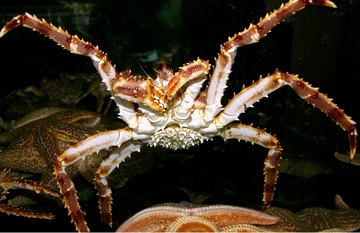
Fishery disaster aid and nearly $500 million worth of Alaska projects included in omnibus budget bill
Aid to Alaska fishermen, companies and communities was included in the year-end omnibus appropriations package that won final passage on Friday. The $300 million in aid funding follows official disaster declarations issued last week by U.S. Commerce Secretary Gina Raimondo for Alaska salmon and crab fishery failures dating back to 2020, as well as some salmon failures in Washington state dating back to 2019. The $300 million in total disaster aid “is a great start for much-needed money to help fishermen and communities pay their bills,” Jamie Goen, executive director of Alaska Bering Sea Crabbers, said in a statement. >click to read< 10:01
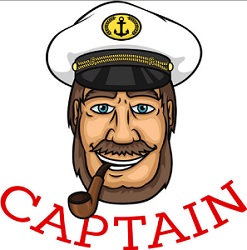
Coast Guard halts illegal use of “paper captains” in WA-based tuna fishing operation
The Coast Guard said in a statement last week that it intervened Oct. 19 to stop the use of illegal foreign nationals on a commercial fishing vessel that operated out of the state of Washington. A Coast Guard Sector Columbia River law enforcement team inspected an 89-foot fishing vessel and determined that the vessel was in violation of the Jones Act — specifically, they were in violation for utilizing a “paper captain.” Paper captain is a term applied to an individual listed on documents as a U.S.-flagged vessel’s captain but in actuality serves as a deckhand or in a similar lower-level capacity. It is federal law that a documented vessel be under the command of a U.S. citizen. In addition to violating the Jones Act, the vessel had several safety violations, including: Degraded immersion suits; an inoperable Emergency Position Indicating Radio Beacon (EPIRB) hydrostatic release; and failure to conduct safety drills. >click to read< 18:00
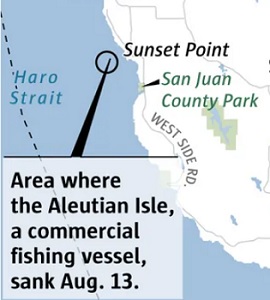
Steps continue to remove sunken boat from seafloor near San Juan Island
Response teams continue to take gradual steps to remove the F/V Aleutian Isle from the seafloor after the 49-foot fishing vessel sank last weekend west of San Juan Island. Teams are moving forward with a plan to remove the whole commercial vessel and have it placed onto a barge, where contaminants can be safely removed, according to a Friday news release from the U.S. Coast Guard 13th District Pacific Northwest. “This is the best course of action to ensure the removal of as much pollutants and contamination as possible from the environmentally sensitive area,” the statement said. >click to read< 20:20
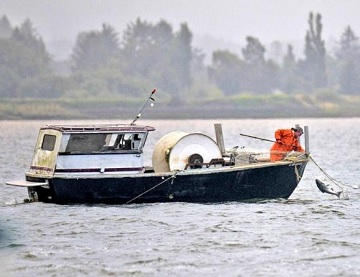
Oregon: Return to evenhanded salmon management
In Astoria in April, the Oregon Fish and Wildlife Commission learned there’s still plenty of life in commercial fishing. This may have come as a surprise, considering how some sport fishing groups have mischaracterized the industry as irrelevant. Since Washington state and Oregon co-manage Columbia River fisheries, the commission’s policies take on great importance for all who value the continuing economic and social benefits of traditional industries. Of these, salmon fishing is so deeply entwined in local culture that it may be said to comprise a key element of our heritage. Still in need of a course correction are misguided policies dictated by former Oregon Gov. John Kitzhaber. >click to read< 07:55
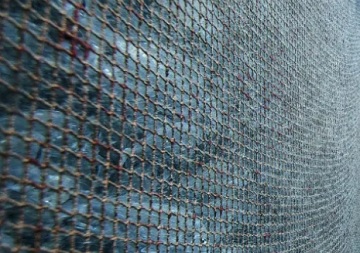
The U.S. is hungry for seafood, but more industrial aquaculture is not the answer
An often cited statistic to prove the need for industrial aquaculture is that as a country, we import as much as 90% of the seafood we consume. A lesser-known fact is that U.S. seafood exports have grown to record levels over the past decade. Rather than allowing destructive fish farming practices that can pollute our environment and displace commercial fishing in our markets, we should support our domestic fishing communities, so they can sell more of the higher-quality wild-caught seafood we produce here at home. Right now, megacorporation’s are pushing the U.S. Environmental Protection Agency and other federal agencies to gut existing regulations and fast-track permit approvals to build new floating factory fish farms and control even more of the seafood market. >click to read< 14:11
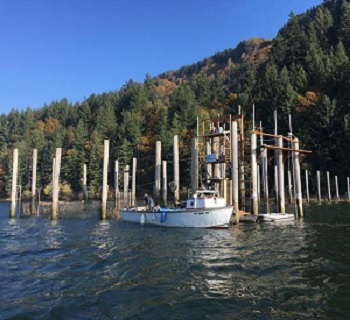
Washington State making a muddle of saving salmon
Local experts connected in various ways with salmon fishing and conservation must be ready to blow a gasket over the Washington Legislature’s latest clumsy efforts to “help.” In legislators’ defense, saving salmon is a supremely messy business, with more murky cross currents and furious undertows than a dangerous outer coast beach.,, Intentional confusion is added by outsiders whose only interest is in grabbing salmon for themselves or using the issue merely as a means to generate financial donations from well-wishing urbanites. And as if all that wasn’t enough, salmon management is also bound up with the need to help Washington’s endangered resident orcas, and with the obligation to coordinate some policies with Oregon and Canada. >click to read< 18:31
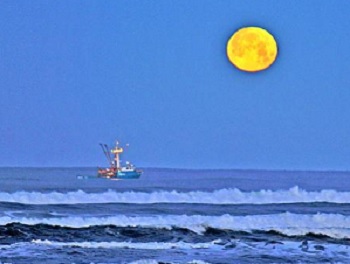
Crabbing families deserve TLC in this tough season
In normal times, this year’s disastrous Dungeness crab season would be big news beyond the coast. Even in this abnormal year, it’s time for elected officials and agencies to pay closer attention to how local families are being hurt by lack of crabbing. Typical measures of economic pain fail to capture the extent of damage.,, The most immediate problem for both commercial crabbing and recreational clamming is the marine toxin domoic acid,,, There are a lot of needy folks this year. That creates a risk that crab-dependent families may be overlooked. This fishery is a disaster and should be treated as an emergency. >click to read< 20:22

Washington State Crab Recall: Certain Dungeness crabs recalled because of poisoning risk
The Quinault Tribe of the Northwestern United States is voluntarily recalling almost 58,000 pounds of live or un-eviscerated Dungeness crab because of possible domoic acid contamination, which can cause amnesic shellfish poisoning in people. With Dungeness crab being a popular New Year’s dish, public health officials in Washing state posted the recall notice today in hopes of reaching holiday cooks before meals are prepared. It is not clear how far the crab may have been distributed. >click to read< 09:30
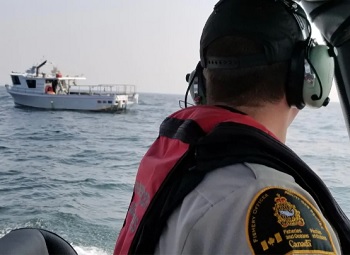
Fisheries officials seize 316 Canadian crab traps set in U.S. water, along with four vessels as part of annual sting
“You have people who push the envelope because it may be worth it for them to do that if they don’t get caught, because there’s money in crab — there’s good money in crab,” he said. “Sometimes getting caught and getting fines may be the price of doing business.” Demsky estimates each set of gear — including a trap, float, ropes and radio frequency ID chip — would cost about $500 to replace. DFO will seek the forfeiture of all of them, and the courts will decide whether the fishers will face fines, the loss of their fishing license or vessels. The fines are often several thousand dollars, but can to go a maximum of $500,000 for a first-time offender, according to Demsky. >click to read< 08:10

DUI interlock issue nearly sinks fisherman
The finicky nature of Washington’s ignition interlock program almost landed a man in jail after he failed to have the machine calibrated on time. Scott Goldade, 45, appeared before Pacific County South District Court Judge Nancy McAllister on Wednesday Sept. 25 for sentence compliance violations. Goldade works as a boat engineer for commercial fishing vessels. When Goldade got back from fishing on July 16 he realized he’d missed his service date when his car wouldn’t start. >click to read< 15:36
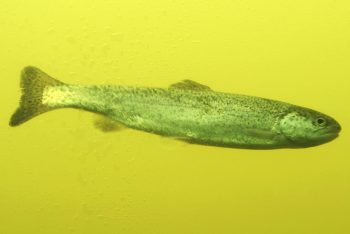
The politically unifying potential of salmon
If there is any issue Democrats and Republicans in Washington State should come together on, it’s salmon. Salmon play a major role in our state’s economy, wildlife diversity and cultural heritage. In Washington alone, salmon help support nearly 16,000 jobs and a $1.1 billion annual fishing economy. Salmon alone provide over 134 million dollars of economic output to Washington state each year. They’re also a keystone species to 137 other animals, including orcas and bears. Unfortunately, the lowest counts of Pacific Northwest salmon in history — and a 60 percent decrease in the population since 1984 — now significantly threaten the essential role of salmon. >click to read<08:58

Alaska, West Coast to receive fishery disaster recovery funds, unclear when
The president signed a bill this month that directs recovery funds to fisheries disasters on the West Coast, including in Alaska, but it’s still unclear how the limited funds will be distributed. In a letter to the U.S. Senate in January, senators wrote that they saw a $150 million need in Alaska following the 2016 pink salmon season disaster in the Gulf. They also identified a $140 million need for the fisheries disasters in California and $117 million for those in Washington State.,, “There’s only $200 million that has been identified for all nine of these disasters,,,, >click to read<15:39
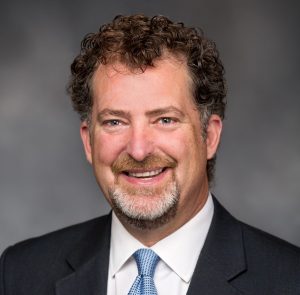
Washington senator wants B.C. to follow suit and phase out net-pen fish farms
A Washington senator says he wants to see British Columbia join the state in phasing out ocean-based Atlantic salmon farms when the province decides whether to renew farm leases in June. An American ban will be less effective in the shared ecosystem of the Salish Sea if fish farms continue to operate in Canadian waters, said Democrat Sen. Kevin Ranker. The Washington state senate and house of representatives have recently passed bills that would phase out net-pen farms when their leases come up for renewal over the next seven years. >click to read<14:06


































